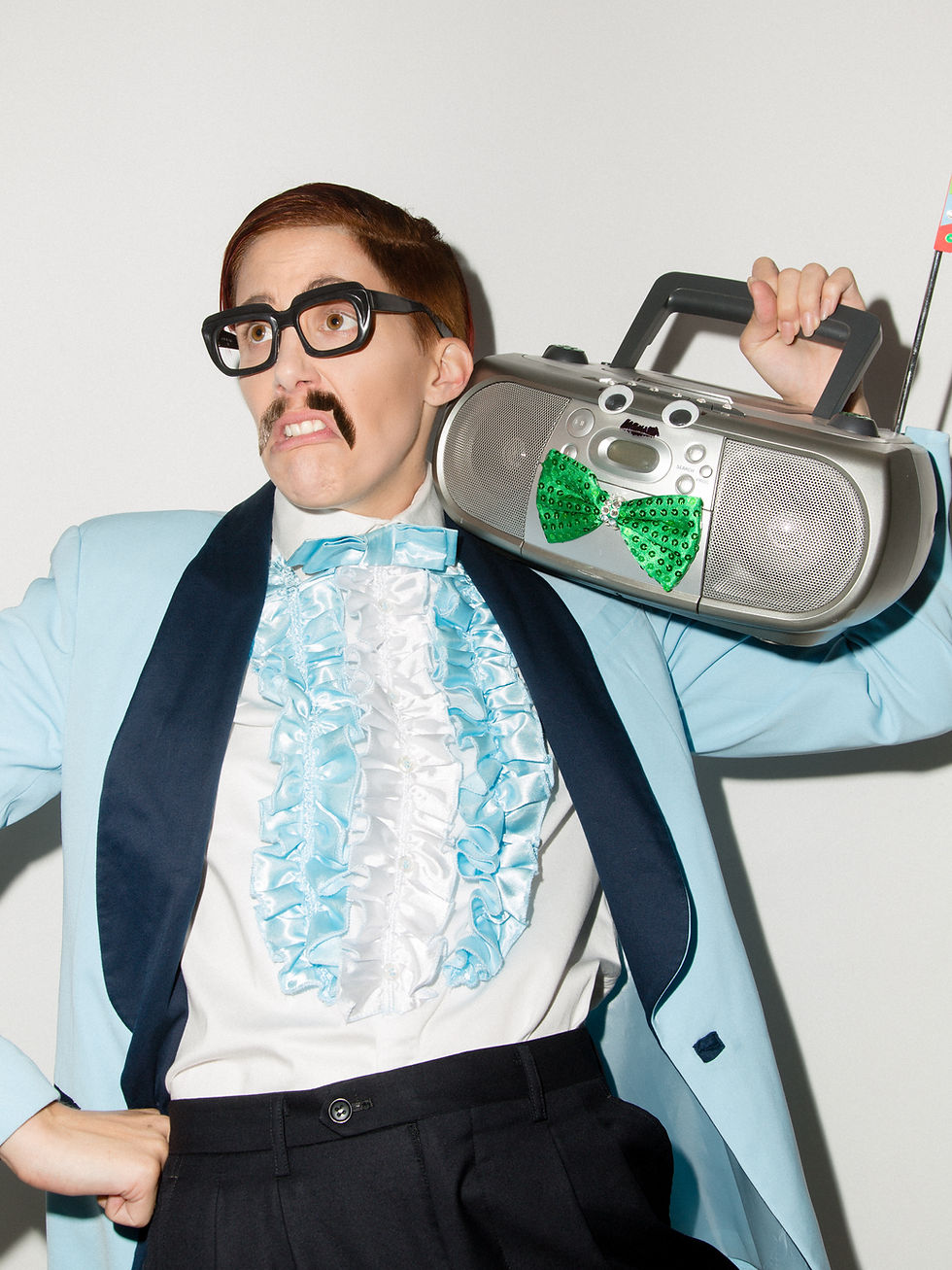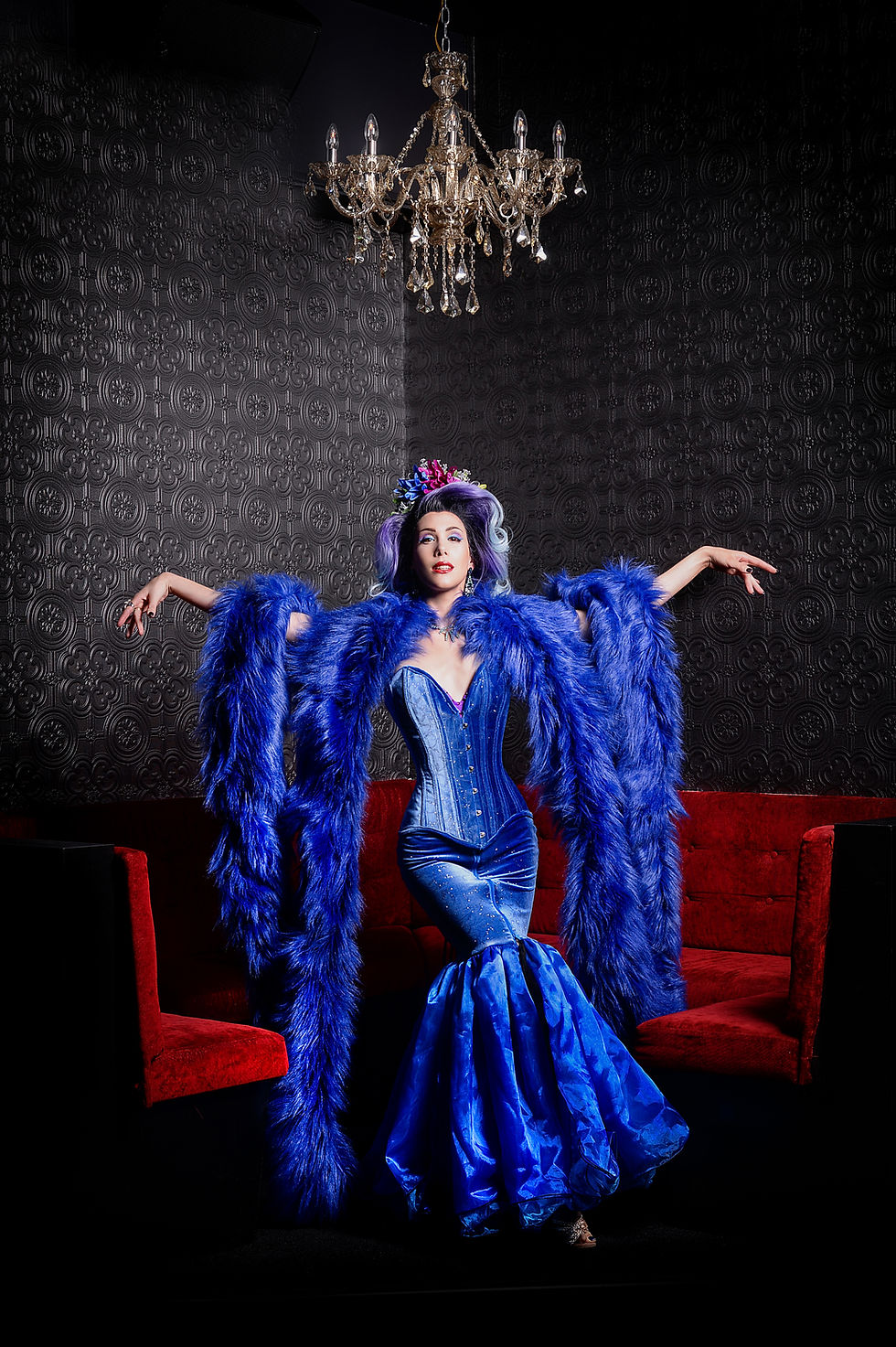A quick note - I originally posted this on my now defunct website lillyloca.com on January 10th, 2018. I have updated this a bit to acknowledge the passing of time since the original post.
This was my best performing blog post, and I've had requests from industry professionals for me to re-post, so here it is!.
Enjoy!
Character (n):
1. the mental and moral qualities distinctive to an individual.
2. a person in a novel, play, or film.
Persona (n):
1. the aspect of someone's character that is presented to or perceived by others e.g. "their burlesque persona"
I've often heard performers getting confused as to how to classify themselves am I a character? personality? both?
Let's put our thinking caps on and figure out what the differences are between character vs personality.
To me, when people get it wrong, it irks me. Why? Well, because having performed in theatre and acting most of my life until 13 years ago when I first dipped my toes into the sparkly waters of burlesque, I was very much involved in character-based roles. I still am, and very much incorporate it into my burlesque career, but how I perceive a character may be a bit different to someone else who possibly doesn't have a theatrical background. I can't expect to get frustrated if someone is just a bit naive and thinks characters and personas are the same deal. So - I'm going to clear it all up for you!
Important Note:
There is absolutely nothing wrong with having either a character, personality or both! It's just important to get it right when selling yourself to a client or producer. If people sell themselves as a roving character, yet when push comes to shove, the "character" isn't fully formed, and when hit with questions from people your interacting with while in role like "So, who is your father?" and you can't answer it - that character isn't developed and you've essentially promoted yourself as being someone you aren't. If you're a personality, you are you, just an adapted version of you, so audience members aren't going to expect a fully developed, three dimensional back story apart from your very own!
Character - How do I know if I have one?
As stated above, a character has the mental and moral qualities of an individual. Basically, this means your character should have a backstory. Here's a checklist of how you can figure out whether you have a character or a persona:
Do they have a distinct name (that is separate from yourself)?
Do they have distinct personality traits which act as a basis for all of their actions, reactions, conversations, etc?
Do they have a particular way they physicality hold themselves (i.e. they are confident, so walk with a proud chest, tall stature and moderate tension)?
When you are them, do you find that you fall into their mindset and let them drive the way you act, react, perform, interact, etc?
Can you imagine a backstory for them? Do they have a family? what's their favorite colour? Are they married? Do they like seafood?
Do they have any particular quirks (i.e. allergies, a twitchy left eye, a distinct dislike for physical contact)?
If you've answered 3 or more of these with "yes" - you've probably got yourself a character. If you've answered more with "no" or "I'm not sure", then it's probably safe to say you've got yourself a personality.
How do I develop a character?
There are various character profiles you can download from Google - I've got them for all my drag king characters Jethro, Gary and Santago. I know everything about them from what high school they went to (or didn't) to what their preference in food is. It is fundamental if you're creating a character to have a well rounded, fleshed out, 3D one - especially if you're roving. Why? Because their history, personality, quirks and life experiences will be a huge influence on how they interact with people and the kinds of acts you'll come up with for them. Just like if you have a personality - the acts you create for your onstage persona are inspired and influenced by your own life! Same needs to happen with a character.
Case Study - Me, Lilly and Gary.

To use myself as a case study, I'll take one of my characters Gary Krumbert and my onstage burlesque personality Lilly Loca as examples. Gary is a fully fleshed out, 3D character. He has his backstory, he in himself is a person. I am not me when I am him. I am fully, 100% in role as Gary. However I react to a situation in role as him, I instinctively know what to do and how to react because I know him so well as know his backstory well enough to be able to conduct myself accordingly.
With Lilly - essentially, Lilly Loca is me. She is me, I am her. Lilly Loca is a stage name I fashioned myself to separate Nat Hugill, the mother, wife, performing artist, MC, event producer among other things from Lilly Loca - the bawdy, silver tongued burlesque entertainer and MC. To complicate matters further, I say I'm Lilly Loca performing as Gary Krumbert, Jethro Jenkins, Santago Montego, etc. Why? Because I use my name Lilly Loca as an umbrella for all things burlesque - and if I want people to find me, or remember me, I need to link my characters to the name I go by in the burlesque industry. Weird, I know - but otherwise people think Gary is someone who isn't me - you have no idea how many times I've heard people say "OH YOU'RE GARY?!!! I WOULD HAVE NEVER KNOWN HAD YOU NOT TOLD ME!".
To complicate things further...You can be in role in your personality. Yep - now, there's a BIG difference here between being in character or playing a role as your personality. Again, I'll use myself as a case study.
So, as explained before, I, Lilly, am a personality. I am essentially Nat with a jazzy name. Lilly is my mask, my facade, but underneath it all, it's still Nat.
As Lilly, I sometimes take on a role for a particular act. This is to say, they're not a character as they're not fully fleshed out or a person in their own right, it's me as Lilly taking on characteristics of a particular character to help achieve a particular emotion, feel, look, etc. Pretty much it's performer inception, haha!

When I perform my Absolem routine - the routine is inspired by the character of Absolem from the famed Alice in Wonderland books. However I am not the character of Absolem. I take on qualities of Absolems character as Lilly to help the audience understand that the act is in homage to this character and helps them to understand the metamorphosis I go through in my routine from caterpillar to butterfly. It's like if a performer was to perform a snake inspired act - they'd take on qualities of a snake to convince the audience that that's what their doing (i.e. use fluid, snake-like movements when performing, use glaring eye contact, etc) but they in themselves are not the character of a snake. On stage, they personify the characters traits, but offstage when people chat to the audience, they're themselves, not in role. See what I mean? That's where it all get's a bit confusing.
So, if you're ever in doubt as to whether you are a character, personality or a personality donning qualities of a character but aren't in themselves a character, read all of the above and ask yourself those questions to determine it.
I hope this has been an insightful read for you and now you know the difference between a character vs personality.


Comments